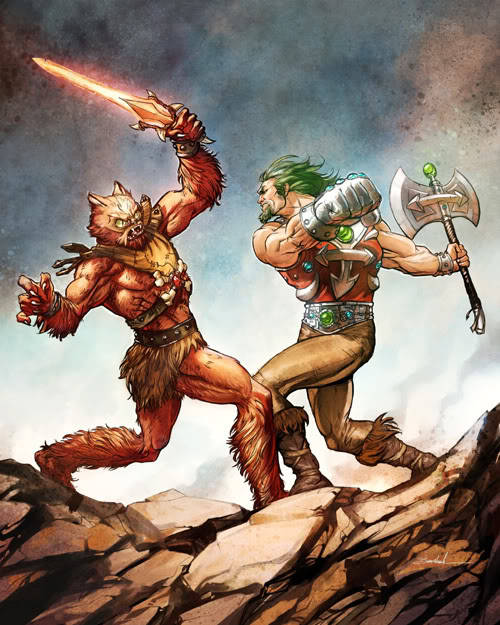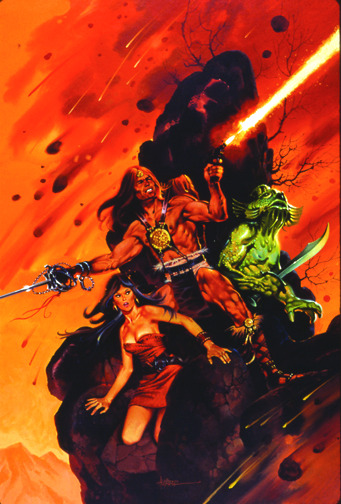Also, it probably falls short as an epic. It's villains are sort of perfunctory and at times a bit silly. Maybe it's seeing Lee Pace on Halt and Catch Fire too much these days and knowing Karen Gillan only from Dr. Who, but they seemed almost laughably over the top in early scenes. The makeup designs were good, but it felt like Gunn might be directing them to try to out "drama!" Shatner and Montalban in Wrath of Khan. If either had had a mustache they would have no doubt twisted it. I will say this attenuated a bit as things went on, so either they got more comfortable in the roles, or it was just me.
All that said: I think it's a good movie. It's a fun movie. It has great pacing. It's main characters (while simple in characterization) are all given both good comedy and dramatic moments. While I didn't find it as funny as some, I will say their are really very few groaner lines for this sort of thing.
Most of all, I think it's a great blueprint for a space opera-ish rpg campaign. The characters all have their own roles and the group has their own ship. They are initially mistrustful, but they find reasons to team up. Action takes preference over world-building, but there is just enough of the latter to intrigue players. The climatic battle is big, but structured in such a way to give the PCs central rolls. The ending sets things up perfectly for more adventures.
So yeah, go see it, despite my nitpicks.
Also: Maybe it's just me, but it bears a strong resemblance to Farscape. A disparate band escapes prison, We've got a pop culture referencing, sometimes buffoonish, hero from earth, a badass warrior woman betraying her people who has sexual tension with the hero, a sonorous-voiced warrior mourning his wife and child, a diminutive and amoral nonhuman, and a tender-hearted plant being. Weird, huh?






















